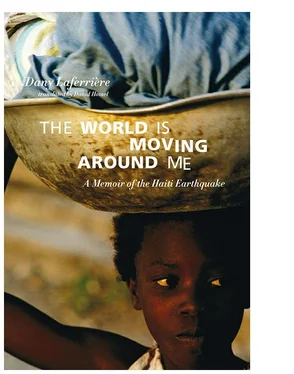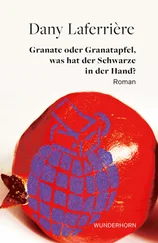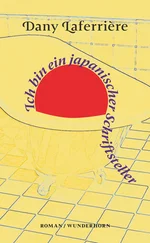A Faithful Friend
I met Marcus for the first time in 1972 at a talk at the Institut français. I had just finished secondary school and had registered in the ethnology department, which, in my hopeful opinion, was one of the rare spots in Port-au-Prince where you could catch a good nap while getting an education. It was the final refuge for people who had failed to enter a more prestigious department, like medicine, engineering, or agronomy. Law wasn’t worth much at the time, but it was more highly rated than ethnology. The latter is useful in Haiti, but only if you want to do research on voodoo, traditional music, and sacred dances. You had to wear a full beard, a peasant shirt, and a few necklaces of dried maldioc beans. I whiled away the afternoons at the university, not far from the Palace movie theater, discussing Dr Price-Mars’ theories on the influence of African culture on Haitian identity, and the impact of French culture, which meant Parisian, on the local bourgeoisie. One evening, I met up with Marcus again at a show at the Collège Saint-Pierre museum, and he asked me to come and work with him at the Haïti-Inter radio station. I was a reporter for the midday news show that he was directing. Since we were neighbors, he on ruelle Roy and I on Lafleur-Duchêne, we used to have breakfast together. His wife Jocelyne wasted no time adopting me. We listened to Wagner, since Marcus had developed an addiction to his music during an internship in France. Every morning we’d go jogging in the Champ-de-Mars, discussing the political situation, or more often than not the complicated relation between power and the press. We had to watch what we said. There were signs that government spies had infiltrated the media, passing themselves off as independent journalists. Which was why we did our talking as we ran around the edge of the park. Marcus was a very meticulous journalist who hated rumors. He insisted on backing up every statement with facts, in a country where everyone was forever making up stories. The government, the opposition, the press, people in their daily lives, everyone was busy inventing a private universe that had no relation to reality. I wondered how he had developed his passion for fact. I saw him lose his head only once: the day his daughter was born. He came by the house because he wanted me to go to the hospital with him. The effort to maintain his self-control made him seem more wound up. I pretended I didn’t notice anything. He drove around the Presidential Palace three times in a row. Normally we avoided the place. It was infested with the regime’s henchmen, and a flat tire could have disastrous results. We reached the hospital untouched. His happiness was something to see when he learned he had a daughter. Yet he waited a month before he took the baby in his arms. His wife Jocelyne would give me desperate looks until one morning, just before getting into his car to drive to the radio station, he turned to her and took the baby. You should have seen her ecstatic look! Marcus was the first to tell me about the death of Gasner Raymond, the friend who shared a byline with me for Le Petit Samedi Soir , a weekly that covered politics and culture, and that was barely tolerated by the government. I left for Montreal after Gasner was murdered in June of 1976, and in November 1980, Marcus was thrown in prison with all the other independent journalists who called for elections in the country, since the Duvalier regime had been in power since 1957. Later, the group was sent into exile. We met again in New York. There was a return to Haiti in 1986 after Jean-Claude Duvalier left. We lost track of each other then, but came together again in Miami in 1990 when I moved there from Montreal to have a quieter place to write. I lived in Kendall, in the southwest, and he was next to Little Haiti. Every time I went to see my aunts there, I’d stop by and spend some time with Marcus and Jocelyne. He was still active and publishing a political weekly, Haïti-Demain , and hosting a radio show. We discussed all kinds of things, jumping from politics to literature, not to mention the gossip of everyday life. We also talked a lot about American culture, which fascinated both of us, even if we did live in the belly of the beast. I would bring escapist novels for Jocelyne who was still nostalgic about life in Port-au-Prince. She went back as soon as she got the chance. It was more difficult for Marcus; he had to stay in Miami for his newspaper and his radio show. His dream was to have a station in Haiti. With his friend Lucien Andrews, he did just that, years later. It became Mélodie FM. That’s where I met him today, at noon. He entrusted me to his young team of reporters as he finished the next issue of Haïti-Demain . I looked around the station and felt I’d traveled back in time to the mid-1970s. Then Batraville showed up, and we talked for a while (they served us coffee) in Marcus’s office, though he hadn’t finished the issue yet. Nothing could distract him from his work, even a friend he hadn’t seen in more than ten years. We got around to talking about what Marcus was able to save from the ruins of his house after the earthquake. He described everything in a neutral tone, without pathos. I know him well: he’d throw himself into a raging river to rescue a dog. He was at the station when it happened. As soon as he understood it was an earthquake, he went home. He knew Jocelyne was dead when he saw the empty space where his house had been. She had to be in there. At that time of day, she would have been knitting in front of the TV. And it was true: he found her underneath a beam. He rushed her to the hospital but it was too late. He carried her body to a friend’s house before going back to the station. Why go back? Mélodie FM, he told me, a small station, was the only one on the air that night, along with Signal FM. “I’m a journalist. I couldn’t miss a scoop like that,” he said in a steady voice. It was only the second time in the country’s history that a major earthquake had hit Port-au-Prince (we didn’t know yet that Léogâne, Petit-Goâve, and Jacmel were affected too). He stayed and helped inform people about how the situation was developing, and he didn’t leave the studio for days. I imagined Marcus that way. His wife’s body was safe, so he returned to work. One-hundred-percent professional. When I left, he gave me a little radio for my mother. She was so touched he remembered her that she talked about it all evening. She wanted to know why we didn’t see him any more. The stream of life had carried him away.
The Notion of Usefulness
Since January 12 (we say January 12 here the way they say September 11 in other places), the borders of Haiti have disappeared. Haiti is a place where you feel Haitian. It’s not enough to be in Haiti to be useful to the country. That’s what we discovered after the world-wide wave of generosity created by our situation. Things are not determined by place any more. You can be in Haiti and actually be a detriment to its development. François Duvalier hardly ever left the country, and he’s one of the architects of its misfortune. The same goes for kidnappers. And the ones known as the “big eaters”—men who pillage the coffers of the state and who shamefully accumulate a multitude of public-sector jobs. The new nationalism born of January 12 can’t erase the corruption committed by those who never left Haiti. For people who live outside the country, I can understand why they’d like to see it with their own eyes and touch its great body with their hands, but too much attention will end up suffocating the patient. Except, of course, if your profession makes you useful on the ground. We’ve all witnessed that comic scene in which one person is doing all the work while a crowd mills around him. You’re never far from a television camera in Port-au-Prince, now that the city has been turned into a giant set. In this new invasion of Haiti (everyone wants to be at the bedside of the celebrated patient), a lot of organizations and people are in it for their own personal visibility. Of course, a good number of organizations and individuals are completely sincere. How can we separate the wheat from the chaff? No need to waste time with that. As soon as the cameras pull out, the sorting will begin immediately. No sense pushing and shoving; if you want to help, you’ll find a way. I know someone who left Montreal and returned to Port-au-Prince right after the earthquake. Guided only by emotion. Today, he is among the ranks of people who depend on international aid to survive. The country needs energy, not tears.
Читать дальше












